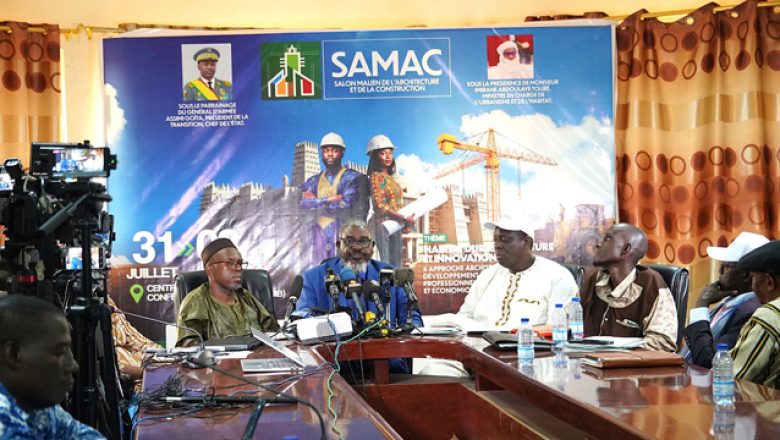
Bamako is set to become the epicentre of sustainable architecture and urban innovation as it welcomes the inaugural edition of the Salon Malien de l’Architecture et de la Construction (SAMAC) from 31 July to 3 August 2025.
The landmark event arrives at a critical time for Mali, where rapid urbanisation, a staggering housing deficit, and mounting land pressure are reshaping the nation’s development priorities.
Held at the Centre International de Conférences de Bamako, SAMAC is organised under the high patronage of President General Assimi Goïta and spearheaded by the Ordre des Architectes du Mali, a body established in 1989 and now comprising 250 members.
The event is expected to draw around 2,000 visitors and 30 exhibitors, including architects, urban planners, engineers, and economic policymakers.
The theme, “Sustainable Housing, Culture, and Innovation,” underlines a strategic shift toward architecture as a cornerstone of Mali’s economic and social transformation.
With 47% of Mali’s population now living in urban areas and urban growth estimated at 4.7% annually, demand for housing and infrastructure continues to soar.
Official figures from the Ministry of Housing and the Centre for Affordable Housing Finance in Africa (CAHF) project a housing deficit of nearly 1.5 million units within the next five years.
Yet challenges persist. Land prices alone can account for up to 50% of a home’s final cost, while the price of a single sack of cement now exceeds 6,000 CFA francs, pushing housing further out of reach for many families.
These barriers have triggered the expansion of informal settlements, exacerbating social inequality and placing mounting strain on public resources.
In this context, SAMAC emerges as a crucial platform for dialogue, collaboration, and innovation.
It aims to rethink traditional approaches to construction, elevate the role of local expertise, and promote affordable, climate-resilient design solutions that reflect Mali’s cultural heritage.
By bringing together key players from across sectors, the event aspires not only to spark investment and policy reform but to lay the groundwork for a more equitable and sustainable urban future in Mali.



